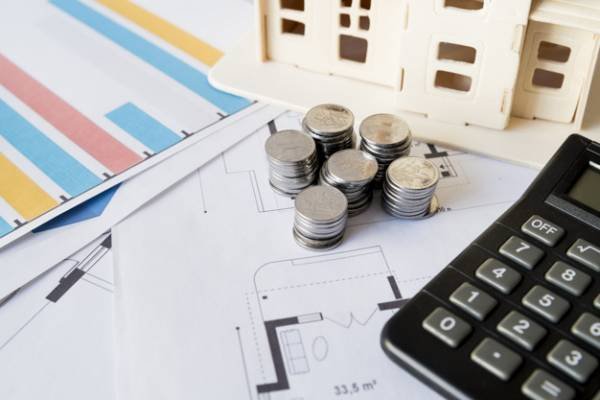RegulationsBuilding ChargesUnderstand it
Many people today have moved from their small towns and villages to choose city living and apartment life. Apartment living is a new lifestyle that comes with its own rules, regulations, and challenges. One of the most significant issues in this context is how to manage the payment of building charges, which we address in this section ofSelMagzWe’ve covered this topic.
What are building charges?
Building charges refer to the common expenses in a residential complex that all residents must contribute to. The amount of these costs depends on the type of the building and its facilities, and apartment residents are obligated to pay these common fees to the building manager monthly.
How to calculate building charges
Disputes between tenants and owners regarding costs and rent occur in many buildings. Often, these conflicts arise from a lack of knowledge about the regulations. The right charge for each unit is determined based on specific clauses and rules. It includes details about who is responsible for which charges, how they should be calculated, and the payment method. Residents must pay the building manager according to the calculation method they provide.
These regulations also grant certain privileges to the building manager to deal with residents who do not pay their charges. There are also startups that assist building managers and residents in managing costs in a shared environment.

Calculating building charges legally and contractually
Building charges can be calculated through legal and contractual approaches, defining owners’ shares of common expenses.
To determine owners’ shares legally, refer to Article 4 of the Property Ownership Law. This law states that building charges must be paid based on the area of each unit, but there are some expenses that do not relate to the area and should be equally divided among residents.
According to Clause 3 of this article, if the placement of the building’s yard, balcony, or terrace is such that only one or several residential units have access, the maintenance costs for that part fall to the user(s).
Each owner’s share of the common area expenses is divided into two types: relative and fixed costs.
Relative costs:
According to Article 14 of the Property Ownership Law, the manager must insure the entire building against fire, and each owner must pay their share to the insurance provider proportional to their area.
Residents must also pay common costs, such as water, fuel, and roof asphalting, based on their area. Therefore, relative building expenses are categorized into ongoing costs and insurance premiums. To calculate these types of costs, first, determine the total area of the units, then divide the total cost by that area, so each unit pays their share based on their size.
Fixed costs:
These costs are not related to building area and include expenses like janitorial services, guards, elevators, maintenance costs, gardeners, and common areas, and should be equally divided among units. Another type of fixed cost is a legal reserve that insures the building against unexpected expenses. The amount for this reserve is decided by the consensus of all building members.

Which costs should tenants and which should owners cover?
Costs that tenants are responsible for:
- Water, electricity, gas, and phone bills.
- Elevator repair and service costs.
- Building charges.
- Any type of damage caused by tenants.
- Resolving sewer issues after several months of tenant occupancy.
- Paying the annual municipal waste fees.
Costs that owners are responsible for:
- Major elevator and home repairs.
- Resolving sewer issues at the start of tenant occupancy.
- Municipal renovation fees.
- Repairing burst pipes.
Note:
Tenants can carry out repairs and make changes with the landlord’s permission, but they must contact the landlord before taking any action. They can then agree with the landlord to deduct these expenses from their rent. For this, tenants must keep all expense receipts as valid proof.

If one of the apartment units is vacant and the owner does not pay the charges, who is right?
Maintenance costs of the apartment must be shared by all, so it does not matter if a unit is vacant or not; it is the owner’s responsibility to cover these costs, independent of usage. For example, everyone must contribute to the costs of waterproofing the roof.
How to pay apartment charges
Should the building charges be paid by the tenant or the owner? The payment of apartment charges is entirely negotiable, meaning they must determine who pays the charges when signing the lease agreement. If the owner is responsible for common expenses but fails to pay them, the tenant can pay these costs and deduct them from the rent owed to the owner.
If the owner and tenant did not specify who should pay when signing the contract, the tenant must cover the charges since these are necessary expenses for proper use of the residence.
If you are unhappy with the determined charge amount, approach the manager and request a review. If the manager ignores your concerns, you can file a complaint with legal authorities. In this case, you should consult the Dispute Resolution Council or the local court and gather testimonies from neighbors related to excessive charges for repairs.
Paying charges for a newborn
The law does not specify a charge for newborns, and this matter depends on the agreement between the manager or the board of the building. The usage of common building resources (such as water, gas, etc.) increases with the arrival of a newborn; therefore, it is reasonable to charge for a newborn’s share as well.
How to deal with residents who do not pay their charges:
1. First, a written warning should be given regarding the non-payment of charges.
2. If payment is still not made, the building manager must prepare a notice from judicial authorities indicating that if the neighbor does not pay their debt within 10 days from the date stated, the manager may cease providing shared services such as heating, hot water, gas, etc., to that unit.
3. If the neighbor still refuses to pay their charge, the manager should approach the office of notarized documents to request enforcement based on the served notice. The execution office will ask the manager to identify assets of the delinquent owner or tenant so that these can be frozen and sold to cover the owed charges.
If the demanded charge amount is less than 20 million tomans, the manager can visit the local dispute resolution council to request payment, and if the amount exceeds 20 million tomans, the manager can approach the general court where the property is located.

Applications for building residents
As you may know, there are applications available for building management, which not only have a web version but also a mobile app for easier access. Through these applications, managers can register building expenses or charges, allowing residents to easily view and pay for the costs incurred.
In what areas is the building charge utilized?
- Common electricity, water, and gas expenses.
- Maintenance and repair costs for common building areas.
- Costs related to caring for plants and green areas in shared spaces.
- Costs related to janitorial services.
- Costs for purchasing necessary supplies for common areas (like cleaning supplies, corridor lighting, etc.).
- Other essential costs determined by the manager.
If the collected charges each month are not used, what happens?
If monthly charges are unused for several months or if some is left over, residents cannot refuse to pay future charges and must pay their apartment charge every month regardless of the fund’s balance. The board has the duty to hold those amounts in the financial fund.







